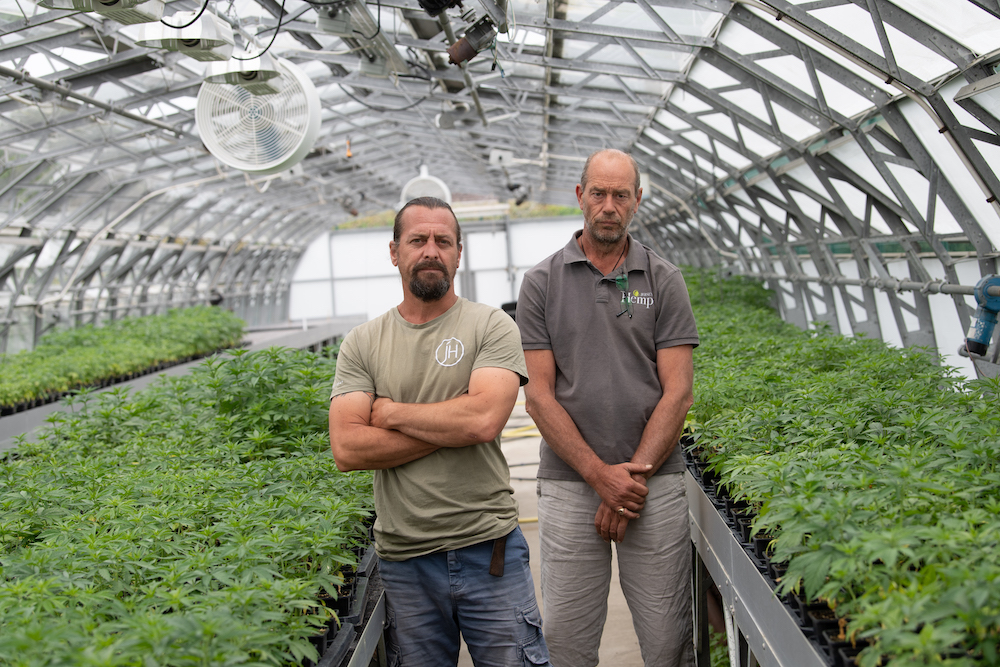


Guernsey and Jersey’s burgeoning medicinal cannabis and CBD product industries appeared to get off to a flying start.
There was much talk of the islands gaining competitive advantage by being among the first jurisdictions to embrace medicinal cannabis as a legitimate economic sector with huge potential for growth.
But development, at least for some firms that appeared at one point leading the way, seems to be stalling.
Express took a closer look at the issues...
Jersey Hemp has closed and laid off two-thirds of its workforce after being told by the Home Office that its CBD products are illegal – despite other unregulated brands of cannabis-based wellbeing goods from China and elsewhere remaining on sale in the UK – and the firm is now looking to take legal action against the UK and Jersey Governments.
It means the company is deprived of 90% of its market.
He added that after millions of pounds worth of investment, much of it from local backers, and a bright plan for the future, the company was simply unable to stay open because it had been denied access to its largest market.

Pictured: Jersey Hemp has closed and laid off two-thirds of its workforce after being told by the Home Office that its CBD products are illegal.
As a result, eight people have lost their jobs and its sales and growing operations have ceased.
Jersey Hemp Director Craig Dempster said the company had just agreed the rollout of its products in Tesco supermarkets across Britain and was seeking further investment to continue growing.
Mr Dempster said that politicians had fallen over themselves to be seen to support Jersey Hemp at election time and when they saw value in doing so, but had rolled over and parroted the UK line despite knowing that the Home Office was wrong.
At the heart of the argument is whether Jersey Hemp’s CBD products meet the three-part test to be exempted from laws controlling the sale of illegal drugs. CBD products are subject to the law because they contain trace amounts of THC, the active and banned ingredient in cannabis.
The three limbs are that the products are not “designed for administration of the controlled drug to a human or animal”; the products are presented for sale in a way in which the controlled drug element (THC) cannot be readily extracted so as to constitute a risk to health, and that no single product can contain more than 1mg of THC.

Pictured: Jersey Hemp co-founders, Blair Jones and Dave Ryan.
Mr Dempster claimed that the Home Office initially said that their products contravened the third limb, but had actually misread the data supplied by an independent and licensed third-party tester. Despite acknowledging their mistake, he said, they then argued that it did not comply with the first limb because it contained THC.
He explained that the contradiction was maddening because limb three accepted that there would be trace amounts of THC in all CBD products and sought to regulate the amount, but they were now being told that it was banned because it contained THC, even though that level was proven to be within legal parameters.
“The more you understand it, the more ridiculous it becomes,” he added.
“Why are we being singled out despite going through every regulatory hoop to be the best product on the market? They are targeting us because we are regulated. It is clearly unfair and if this decision is upheld it would mean that every product on sale in the UK is illegal. It’s the blind leading the blind.”
The news comes in the same week as one Guernsey Deputy claimed in an interview with Express that the island’s CBD industry was in a good place before it signed a badly drawn up Memorandum of Understanding (MoU) with the UK Home Office.

Pictured: Deputy Leadbeater claimed that the island’s CBD industry was in a good place before it signed a badly drawn up Memorandum of Understanding (MoU) with the UK Home Office.
Medicinal cannabis was legalised in Guernsey in 2019. The island until that point had a number of licensees growing CBD product, who then had to re-licence in order to grow and process high level THC cannabis for the medicinal market.
Because Guernsey isn’t a signatory to international conventions on narcotics, to be able to trade THC product internationally it had to have the convention extended to the island, meaning an MoU with the UK would need to be signed.
LISTEN: The full interview with Deputy Leadbeater about Guernsey's cannabis industry.
According to Deputy Leadbeater, it was here that the problems began.
“Licensees were quite happy growing CBD when there was an accepted minimum standard for security,” he said.
“When the MoU was signed the Home Office came along and said ‘no’, eight-foot chain link fence is unacceptable. [The Home Office] tore up the book on all the security measures Guernsey had been working towards.”
He said Guernsey used to differentiate between CBD and THC products and the difference in risk posed between the two.
“The difference with the UK is that they don't differentiate... which made it completely unviable for anybody to continue growing CBD in Guernsey.”
In May, Express reported that Guernsey had lost the opportunity to create around 40 jobs locally, as island-grown House of Green chose to expand into Europe instead.
Established in 2019, The House of Green has entered into a joint venture with Proto Global GmbH, the German parent company of Schaeffer Nutraceuticals.
Paul Smith, CEO of The House of Green, said the deal will see the firm relocate its fully operational cannabis extraction laboratory from Guernsey to Poland, with regulations likely to change in various EU countries in the near future enabling the extraction of cannabinoids for the manufacture of products.
The newly built GMP certified facility at Kostrzyn in Poland - which is already manufacturing nutraceutical products for Schaeffer Nutraceuticals - will replace The House of Green's former facility in Guernsey which closed down last year.

Pictured: Paul Smith, CEO of The House of Green.
While it won't make any difference to the business in Guernsey as that site had already closed, The House of Green believes that the challenges facing the industry locally will cost the island in the future.
"There will be no further job losses in Guernsey as a result of this move as we had already closed down the operational part of our business in Guernsey last year and unfortunately had to make some redundancies at that time," explained the business.
"Due to the success of our shops in the Arcade and at the Bridge in Guernsey we have actually recently been taking on additional staff.
"It does mean, however, that we will not be staffing up a cultivation, extraction and manufacturing operation in Guernsey, which could have employed up to 40 people in the foreseeable future and this will now be done in Europe. It also means that Guernsey will not now benefit from this element of our business and the tax revenue that it would have generated.”

Pictured: Bailiwick Botanicals – retail side of The House of Green business – is recruiting more staff with shops in Guernsey and Jersey, and outlets in Alderney and Sark.
In January last year, Express reported how some local growers said they had lost hundreds of thousands of pounds in a dispute with The House of Green.
The company had seen its application for licences to cultivate cannabis rejected by the Bailiwick of Guernsey Cannabis Agency, and in turn it had said that the Channel Islands Cannabis Industry Association was concerned about the island's licensing system.
That licensing system was set up by the States’ Committee for Health & Social Care in 2021 but the Association and the company said they had a number of concerns about how it was progressing.
In contrast to the challenges faced in Guernsey, the site in Poland also has planning permission for a second building, which will be built to EU-GMP pharmaceutical specifications and more than double the capacity of the existing operation to 3,000 m2.
Comments
Comments on this story express the views of the commentator only, not Bailiwick Publishing. We are unable to guarantee the accuracy of any of those comments.